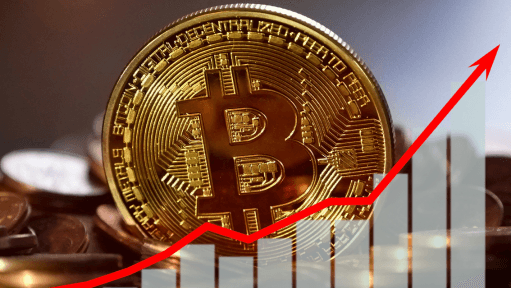
Bitcoin's Unexpected Stability in 2024: A Turning Point for Long-Term Investors
Amid Reduced Volatility and Increased Institutional Interest, Bitcoin is Reconsidered as a Viable Investment Option
Bitcoin, long known for its dramatic price swings, has surprised investors in 2024 by exhibiting a level of stability previously unseen in its history. As the largest cryptocurrency by market capitalization remains range-bound between $65,000 (Dh238,745) and $70,000 (Dh91,826), this newfound stability is causing many to reconsider their views on whether Bitcoin can now be considered a safer, long-term investment.
Bitcoin's History of Volatility
Since its inception in 2009, Bitcoin has been synonymous with extreme volatility. Early adopters witnessed the cryptocurrency skyrocket from mere cents to thousands of dollars in just a few years, while skeptics watched the value plummet just as quickly during market corrections. These wild price fluctuations were often linked to regulatory concerns, security breaches on exchanges, or broader economic factors affecting investor sentiment. As a result, Bitcoin has been viewed as a high-risk asset class, appealing mostly to speculative investors seeking quick profits.
However, in 2024, Bitcoin has largely traded within a narrow price range, maintaining a level of consistency that has surprised many market analysts. This newfound stability raises a critical question: Has Bitcoin matured to the point where it is now a viable long-term investment?
What’s Behind the Stabilization?
Several factors contribute to the current stability in Bitcoin’s price. Firstly, broader adoption of the cryptocurrency, both by institutional investors and by major corporations, has lent Bitcoin a degree of legitimacy and reduced the speculative swings that once defined it. In addition, as more financial products linked to Bitcoin—such as exchange-traded funds (ETFs) and futures contracts—become available, investors now have more sophisticated tools to manage their exposure, leading to a less volatile market.
Moreover, regulatory clarity in key markets like the U.S. and the European Union has eased concerns about government crackdowns, which have historically caused panic selling among investors. As global financial institutions increasingly view Bitcoin as a store of value or a hedge against inflation, the asset class is experiencing more widespread acceptance, stabilizing its price.
Is Bitcoin Becoming a Safe Investment?
The reduction in Bitcoin’s volatility has prompted fewer analysts to take a polarizing stance on its viability as an investment. In past years, financial experts were often divided into two camps: those who believed Bitcoin was a bubble destined to burst, and those who viewed it as the future of money and a hedge against inflation. Now, the middle ground is becoming more populated, as even former skeptics are acknowledging the cryptocurrency’s growing resilience.
“Bitcoin has shown a remarkable ability to weather market turbulence and maintain a strong value proposition as a decentralized asset,” said one cryptocurrency analyst. “With price fluctuations becoming more subdued, Bitcoin is transitioning from being a speculative asset to a more stable form of digital gold.”
That said, experts caution that while Bitcoin's volatility has decreased, it is far from a "risk-free" investment. Cryptocurrencies remain vulnerable to external forces such as changes in regulation, technological disruptions, or macroeconomic trends. Nonetheless, the improved stability has made Bitcoin a more attractive option for investors who were previously deterred by its unpredictability.
Institutional Investors on Board
One of the key drivers of Bitcoin’s recent stability is the growing participation of institutional investors. Large financial firms, hedge funds, and even pension funds are increasingly allocating a portion of their portfolios to Bitcoin. This influx of capital has contributed to less erratic price movements, as institutional players are generally more focused on long-term gains rather than short-term speculation.
Major corporations are also adding Bitcoin to their balance sheets, seeing it as a hedge against inflation and currency devaluation. This corporate interest further strengthens Bitcoin’s position as a mainstream financial asset, fostering confidence among individual investors who may have once viewed it as a fringe investment.
Regulatory Developments
Regulation has long been a significant factor in Bitcoin’s price movements. In the early years, the threat of government crackdowns or the outright banning of cryptocurrency transactions could send prices into a tailspin. However, 2024 has seen increased regulatory clarity in many major markets. Governments are now implementing clear frameworks that allow for the responsible use of cryptocurrencies, reducing the uncertainty that once caused panic in the market.
This regulatory transparency has encouraged more investors to enter the market, knowing that their investments are safeguarded by legal protections. As countries continue to develop and refine their cryptocurrency regulations, Bitcoin could become even more stable, potentially cementing its status as a long-term investment vehicle.
The Future of Bitcoin: Is It Truly Risk-Free?
While Bitcoin’s recent stability is a promising development, experts urge caution. Cryptocurrency markets are still relatively young, and Bitcoin’s price could remain susceptible to factors like regulatory changes, technological advancements, or shifts in investor sentiment. Although Bitcoin may no longer be the wild rollercoaster it once was, it remains an asset with inherent risks.
Investors considering Bitcoin as part of their portfolio should carefully weigh its potential for growth against the risks that come with investing in a digital currency. The current trend of reduced volatility may continue, but Bitcoin’s future trajectory is far from guaranteed.
Conclusion
Bitcoin's transformation in 2024, from a notoriously volatile asset to one with more consistent price movements, has marked a significant turning point in its evolution as a financial asset. While the cryptocurrency is not entirely risk-free, its stability is making it a more attractive option for long-term investors. With increased institutional adoption, regulatory clarity, and reduced price swings, Bitcoin may finally be shedding its reputation as a speculative asset and evolving into a reliable investment option.
As always, investors should remain vigilant and stay informed about potential risks, but Bitcoin’s recent performance suggests that it is indeed moving toward becoming a more stable asset class in the global financial landscape.
For any enquiries or information, contact ask@tlr.ae or call us on +971 52 644 3004. Follow The Law Reporters on WhatsApp Channels